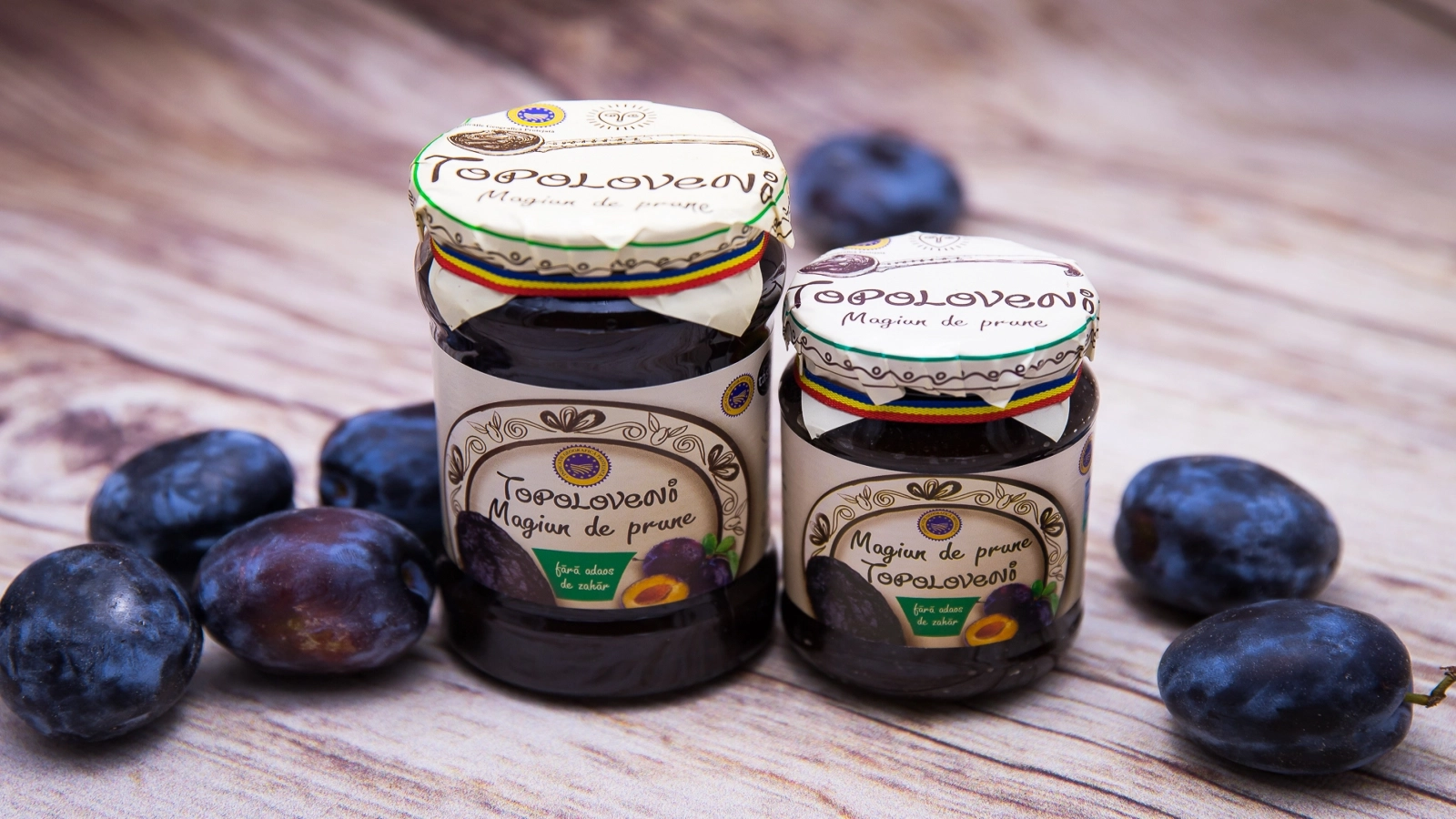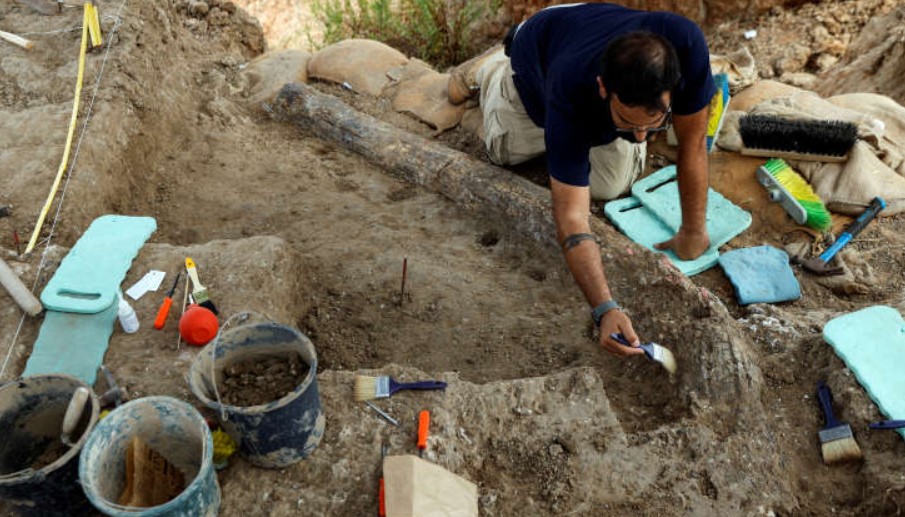Plum picking has ended in the village of Turnu in Arad, and for several days, on many streets, the air has been intoxicated by the sweet-sour smell of magiun simmering over low heat.
For several years, locals have revived the tradition of preparing this delicacy, transforming the work into a true community celebration.
One such place is the home of Toth Piri, a housewife who has turned the making of magiun into a community event. Family members, as well as locals, gather at the traditional house she has set up as a museum to help pick the fruit. When the orchard behind the house has been finished, the fruit is washed and the seeds removed.
"We put the cauldron on the fire and place the washed plums in it, and the boiling takes place for approximately eight hours, at the right heat, during which the wooden spoon is constantly spinning. Depending on how juicy the plums are, the boiling can last up to 15 hours," Tanti Piri, who heads the "Pro-Pir-Kult" Association from Turnu, told AGERPRES.
The secret to a successful magiun lies in the consistency: the paste is ready when it no longer sticks to the turned wooden spoon.
"Standing in front of the kettle and turning the spoon for so many hours is not an easy task, but we do it in turns. The effort is worth it, in the end we have a thick, sweet-sour paste that is excellent in cakes, donuts, langos or even spread on bread," she adds.
An essential element of this traditional recipe is the total lack of sugar, which makes magiun a natural and healthy product.
"It can be consumed without problems even by people with diabetes," assures Tanti Piri.
For boiling, the housewife uses a special copper cauldron, a precious accessory that not many locals own. For this reason, it is borrowed from one family to another, helping to preserve the tradition.
Once boiled, the magiun is put into glass jars, and Tanti Piri respects another ancient custom: sterilizing them with the help of sunlight.
"We keep them in ultraviolet rays all day," she explains.
Dozens of full jars are then placed in a "warm bed", covered with blankets or a duvet for slow cooling of the contents, which ensures long-term preservation.
"Our magiun lasts for years, kept in cool rooms, I've had it for ten years and it hasn't spoiled, it just gets thicker over time," says Tanti Piri.
While the women are busy with the magiun, the husbands make sure that no part of the harvest goes to waste. Aunt Piri's husband, Andrei Toth, is simultaneously boiling túica, another traditional drink, to appease everyone's tastes.
"We have an orchard of 40 plum trees and we make both magiun and plum brandy," says the farmer.
The Toth family transformed the inherited house into a true village museum, collecting hundreds of old objects and folk costumes specific to the communities that lived and still live in harmony in Turnu: Romanians, Hungarians, Serbs and Roma.
"I was born and raised in Turnu and even though I was away for a while, my roots pulled me back. I decorated this inherited house, which now represents our village with everything it has. Romanians, Hungarians, Serbs and Roma lived and still live here, and I decorated one room with the specific costumes of these nationalities. We have always had respect for each other. Regardless of the religion, the language spoken, we live in perfect harmony," says Aunt Piri.
Thousands of visitors, from tourists and schoolchildren to politicians and important people, have crossed their threshold in recent years.
"Tourists also come from Hungary, children come with their schools and universities. Thousands of people have crossed our threshold and the signed guest books are proof that we already have several filled with messages. We warmly welcome any visitor, because we like to share traditions, to tell them how people used to live and what customs we still keep today," explains Andrei Toth.
Pozsar Viorica, representative of the County Association of Hungarian Households in Arad, believes that preparing magiun "is also an opportunity to bring together family, neighbors and community members."
She stated to AGERPRES that "it is a good pretext for socializing, for working together and celebrating, because after work comes the reward."
"In the evening, after work is done, a festive meal is prepared, traditional dishes are served and, obviously, cakes or plum dumplings," says Pozsar Viorica.
She believes that this simple but meaningful tradition "demonstrates that values passed down from generation to generation still play an important role in preserving identity and community spirit."
































Comentează